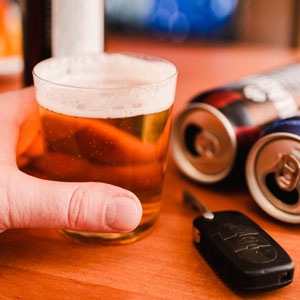Chapter 3: Common DUI Defenses: Strategies That Work
 Questioning The Legality Of The Traffic Stop
Questioning The Legality Of The Traffic Stop
Questioning the legality of the traffic stop can be a powerful strategy if relevant to your case. Filing motions to suppress evidence and scrutinizing the officer’s justification for the stop can significantly impact the outcome of your case for the better. Below are some key aspects of how this is typically handled and can be in your case.
Motion To Suppress Evidence
This pretrial motion aims to exclude evidence that the prosecution obtained as a result of an unlawful stop or arrest. If successful, it can cripple the prosecution’s case. The defense argues that the initial traffic stop lacked reasonable suspicion or probable cause. For example, the officer’s claim of observing a traffic law violation, such as speeding or weaving, might be contested if the defense can show that no such violation occurred.
Leveraging Evidence
Video evidence from patrol car cameras and body-worn cameras serves as a great way to find out what actually happened. With it, courts can independently verify the officer’s observations and actions during a stop. This footage can prove critical in determining the validity of your stop. A DUI defense attorney will likely compare the officer’s written report and testimony to the video footage and other evidence for inconsistencies or lack of justification for the stop.
Challenging Blood Draws
If you had blood drawn, you may be able to challenge whether it was done in compliance with Fourth Amendment protections against unreasonable searches and seizures. The defense can argue that the blood draw was not done in compliance with the Fourth Amendment by arguing that the blood draw did not follow accepted medical practices. If successful, the results of the blood draw could be deemed inadmissible, which might leave the prosecution with insufficient evidence to prove intoxication.
Utilizing Diversion Programs
DUI charges are generally not eligible for diversion programs, which can result in the charges being dismissed after completing certain conditions. However, exceptions exist for veterans and active military personnel. If you have a military background, let your attorney know as soon as possible. Special diversion programs may be available, providing an opportunity for a more favorable resolution.
Disputing The Results Of A Field Sobriety Test
You can dispute the results of field sobriety tests, but doing so involves a thorough examination of the procedures used by law enforcement, the context of the testing environment, and the specific observations made by the officer. However, the results of these tests can be disputed for several reasons.
Many DUI stops are recorded, but the visibility and angle of the footage can impact its usefulness. A decent percentage of these videos are slightly out of view due to officer safety concerns, making it harder to verify the officer’s claims. Whenever possible, the video can be reviewed to see if the driver’s performance on the FSTs matches the officer’s report. Inconsistencies or errors in the officer’s evaluation can go far to undermine the prosecution’s case.
FSTs must be conducted according to the guidelines set by the National Highway Traffic Safety Administration (NHTSA). These tests include the walk-and-turn, one-leg stand, and horizontal gaze nystagmus tests. An experienced attorney can evaluate whether the officer adhered to NHTSA guidelines. Any deviation from these procedures can serve as grounds to call into question the validity of the results.
FST results are often based on the subjective interpretation of the officer, which can very well be biased or inaccurate. Things like uneven surfaces, poor lighting, weather conditions, and the driver’s physical condition, whether they’re seriously injured or have a unique medical condition, all affect the performance of these tests and very often contribute to false positives.
The Impact Of Medical Conditions On A DUI Case
Medical conditions can play a crucial role in a DUI defense. Understanding how specific conditions impact test results and working with an experienced attorney can empower you to successfully challenge the accuracy of the evidence against you. This can potentially lead to reduced charges, dismissal of the case, or a more favorable outcome in court.
The following is a list of common examples, but it is in no way an exhaustive one. If you have a condition not included in this list, let an experienced DUI attorney know so they can help develop the most effective defense strategy for your case.
Diabetes
Symptoms of hypoglycemia (low blood sugar) can mimic those of intoxication, including dizziness, confusion, and slurred speech. Additionally, ketoacidosis can produce acetone, which can be detected by breathalyzers as alcohol, leading to a false positive.
Gastroesophageal Reflux Disease (GERD)
GERD can cause things in the stomach, including alcohol, to flow back into the esophagus and mouth, resulting in higher breathalyzer readings that do not accurately reflect the person’s blood alcohol concentration.
Asthma And Lung Disorders
Some inhalers contain alcohol or other substances that can interfere with breathalyzer readings, leading to falsely high results. If you have respiratory issues, you may struggle to provide a clean breath sample, affecting the accuracy of the breathalyzer test you take.
Epilepsy
The aftereffects of a seizure can mimic signs of intoxication, such as confusion, lack of coordination, and abnormal behavior. Some epilepsy medications can also have side effects that resemble intoxication symptoms.
Liver Conditions
If your liver does not function properly, it may not metabolize alcohol efficiently, potentially resulting in higher BAC readings that do not accurately reflect that you hadn’t actually been drinking.
For more information on Common DUI Defenses: Strategies That Work, an initial consultation is your next best step. Get the information and legal answers you are seeking by calling (415) 782-6002 today.

 Questioning The Legality Of The Traffic Stop
Questioning The Legality Of The Traffic Stop


